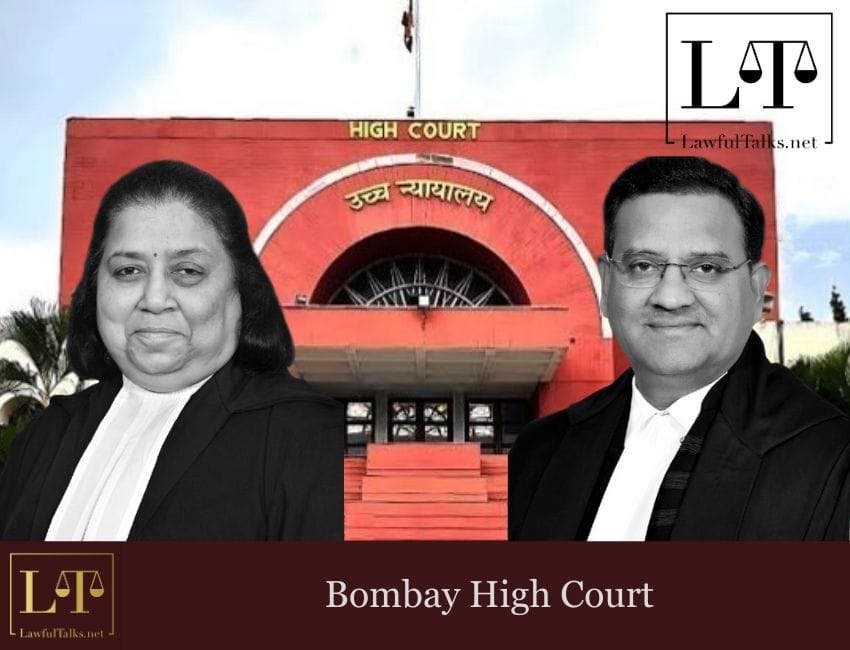Allahabad HC Sets Aside Afzal Ansari's Conviction, Allows Him to Continue as MP

Even though Section 66-A of the IT Act was declared unconstitutional, authorities continue to register cases under it, showing blatant disregard for Supreme Court rulings and a pattern of police overreach.
The Bombay High Court’s Aurangabad bench, comprising Justice Vibha Kankanwadi and Justice S.G. Chapalgaonkar, quashed an FIR lodged against the applicant for allegedly defaming his in-laws via a WhatsApp message. The court ruled that the message, sent privately, did not demonstrate any intent to defame in society, emphasizing the nature of end-to-end encryption on WhatsApp. The court stated, “Unless the recipient chooses to forward it, it can only be read by the person who receives it. The sender then cannot have or intended to have the intention to defame a person in society. Here, the First Information Report does not indicate that the message was put on some group or to various persons individually.”

The applicant, sought to quash the FIR filed by respondent No. 2, a police constable acting in his personal capacity. The FIR initially alleged offenses under Section 500 (defamation) of the Indian Penal Code (IPC), 1860, and Sections 66-A and 66-B of the Information Technology Act (I.T. Act), 2000. These sections were later deleted and amended to include Section 67-A of the I.T. Act. The complaint stemmed from accusations made by Sanap through a WhatsApp message alleging moral misconduct by the complainant's family.
The Advocate for the applicant argued that applicant, who had divorced the sister of respondent No. 2 two years prior, had sent a message to a relative of respondent No. 2, accusing his ex-wife of recording obscene acts during their marriage and sharing them with her brother (respondent No. 2). The message also contained allegations against the respondent’s family, claiming harassment and theft of crops. Respondent No. 2 filed the FIR, alleging defamation based on this message.
The Advocate representing respondent Nos. 2 to 4 argued that the initial registration of the FIR under incorrect sections was an error by the Police Station Officer. Before presenting the applicant to the Magistrate, the error was identified, and a report was submitted to replace Sections 66-A and 66-B with Section 67-A. The Magistrate took the applicant into custody on 6th August 2024 and granted bail the same day. The Advocate contended that there was no mala fide intent on the part of the Investigating Officer (I.O), asserting that the police acted within their responsibilities.
The court had previously noted in its order dated 19th August 2024, that the applicant’s arrest was illegal, as it was based on Section 66-A of the I.T. Act, which had been declared unconstitutional by the Supreme Court in Shreya Singhal vs. Union of India [AIR 2015 SC 1523]. Additionally, Section 66-B was deemed inapplicable as it pertains to dishonestly receiving stolen computer resources. Despite these issues, the applicant was arrested on 6th August 2024, under these unconstitutional provisions. Subsequently, Section 67-A of the I.T. Act was added, but the court found it inapplicable based on the FIR’s content.
The applicant’s counsel cited the case of Apoorva Arora vs. State (Govt. of NCT of Delhi) [AIRONLINE 2024 SC 188], arguing that Section 67-A criminalizes the electronic transmission of sexually explicit acts, and a literal interpretation was not warranted. The court noted that the alleged message did not meet the threshold of being lascivious or prurient. Furthermore, the defamation charge under Section 500 of the IPC, being a non-cognizable offense, required a Magistrate’s complaint rather than an FIR. The Advocate concluded that the FIR should be quashed, and compensation awarded for the applicant’s unlawful arrest.
The court criticized the actions of the Investigating Officer, stating that the arrest was carried out under unconstitutional provisions, violating the applicant’s personal liberty. The court highlighted the importance of following the guidelines in Arnesh Kumar vs. State of Bihar[2014 (8) SCC 273] and Satender Kumar Antil vs. Central Bureau of Investigation [(2022) 10 SCC 51], which mandates proper legal procedures before effecting an arrest. The court observed, “The realization of the wrong section, after the arrest of a person, would be a suicide attempt by an Investigating Officer, because he is bound to follow the law before and at the time of effecting arrest.”
The Magistrate’s role was also scrutinized, as the court found that the Magistrate failed to assess the legality of the arrest before remanding the applicant to custody. Even if Section 67-A was invoked, it was not applicable given the non-explicit nature of the message, and the arrest should have complied with Section 41-A of the Code of Criminal Procedure (now Section 35 of the Bharatiya Nagarik Suraksha Sanhita, 2023).
Consequently, the court quashed the FIR and ordered respondent No. 2 to pay a compensation of Rs. 50,000 to the applicant, to be deposited in court by 14th November 2024. Respondent No. 3 (who is also respondent No. 4) was instructed to pay Rs. 2,00,000 as compensation for the illegal arrest, also to be deposited in court by 14th November 2024. Once the amounts were deposited, they were to be handed over to the applicant. Additionally, the court directed that a copy of the order be sent to the Superintendent of Police, Hingoli, for further actions in view of the decision in Arnesh Kumar.
Case Details: Ashwinkumar Sanap vs State of Maharashtra Criminal Application 2908 of 2024
Advocate for the Petitioner: Advocate BS Dhawale
Advocate for the Respondent: APP AR Kale represented the State. Advocate SE Shekade represented the Hingoli Police Officers.

Anushka Bandekar
Advocate
Latest Posts
Categories
- International News 19 Posts
- Supreme Court 352 Posts
- High Courts 366 Posts




























































































































































































































































































































































































































































































































































































































































































































































